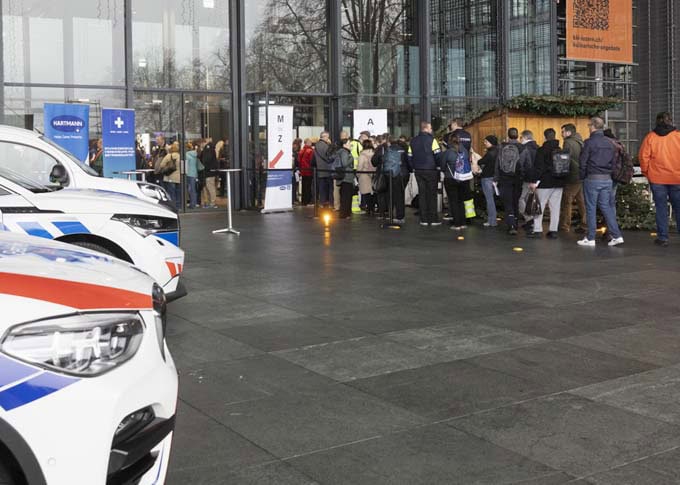International SOS publishes "Risk Map 2024"
International SOS, the provider of security and health services, has published its annual interactive "Risk Map 2024". The risk map helps companies and their mobile employees to get a better overview of the risk level of individual countries worldwide.

The Risk Map 2024 provides companies with basic medical and security risk ratings that reflect the impact of disruptive events, such as the ongoing conflicts in Ukraine and between Israel and Hamas. Using data-driven tools such as the Risk Map can help companies fulfill their duty of care to their employees and adapt to changing safety, health and climate risks around the world.
For the first time, the Risk Map includes a layer that addresses climate-sensitive risks. This is based on data from INFORM - a collaboration between the Euro-Mediterranean Center on Climate Change and the European Commission's Joint Research Centre - which provides quantified estimates of how climate change will affect the future risk of humanitarian crises and disasters. The risk index will serve as a basis for policy decisions in the areas of climate change mitigation and adaptation, disaster risk reduction, sustainable development and humanitarian aid in order to increase resilience to the negative impacts of climate change.
Climate change increases health risks
Compared to the previous year, International SOS sent 80 percent more medical alerts to customers in connection with climate change. This is because as temperatures rise, so do health risks around the world. For their part, companies have also asked for more support on this issue. This increase shows how important the topic is for organizations and their managers.
Dr. Stefan Esser, Regional Medical Director for Central Europe at International SOS says: "Extreme heat events affect health in many ways. In addition to the physical effects of extreme heat, there can also be negative impacts on mental health. For many people, climate change also causes anxiety. Companies should prepare for this and, if necessary, adapt working practices to protect the health of their employees."
Irrespective of climate change, there are changes in medical risks in individual countries and regions. Two notable improvements in medical risk this year have been recorded in Bolivia and Côte d'Ivoire. This is mainly due to the gradual improvement in access to good medical care, particularly in the major cities.
Geopolitical risks continue to dominate global security concerns
The Risk Map also provides a better understanding of the general security situation in the countries through which employees may be traveling or working. The interactive map helps to better inform companies and enables them to develop customized solutions to mitigate the specific risks their employees may be exposed to.
Wolfgang Hofmann, Regional Security Manager for Germany and Austria at International SOS, comments: "In the coming year, geopolitical tensions, unrest and political instability are expected to continue to influence business activity. This is reflected in the Risk Map, where parts of the Middle East, Ukraine and the Sahel region fall into the 'high' or 'extreme' security risk categories. International SOS supports companies operating in these locations, including by providing verified information and recommendations on how such risks may affect their employees or by requiring evacuations."
Due to new and developing conflicts, the risk rating was raised the most in parts of Lebanon, the Palestinian territories, Russia and the Sahel region. Ecuador and parts of Colombia were also given a higher rating following a steady increase in crime and unrest.
In some regions, however, the risk rating has also decreased. In particular, the risk ratings for El Salvador and parts of Nepal have decreased following sustained downward trends in a number of risk factors.
Source: www.internationalsos.com









